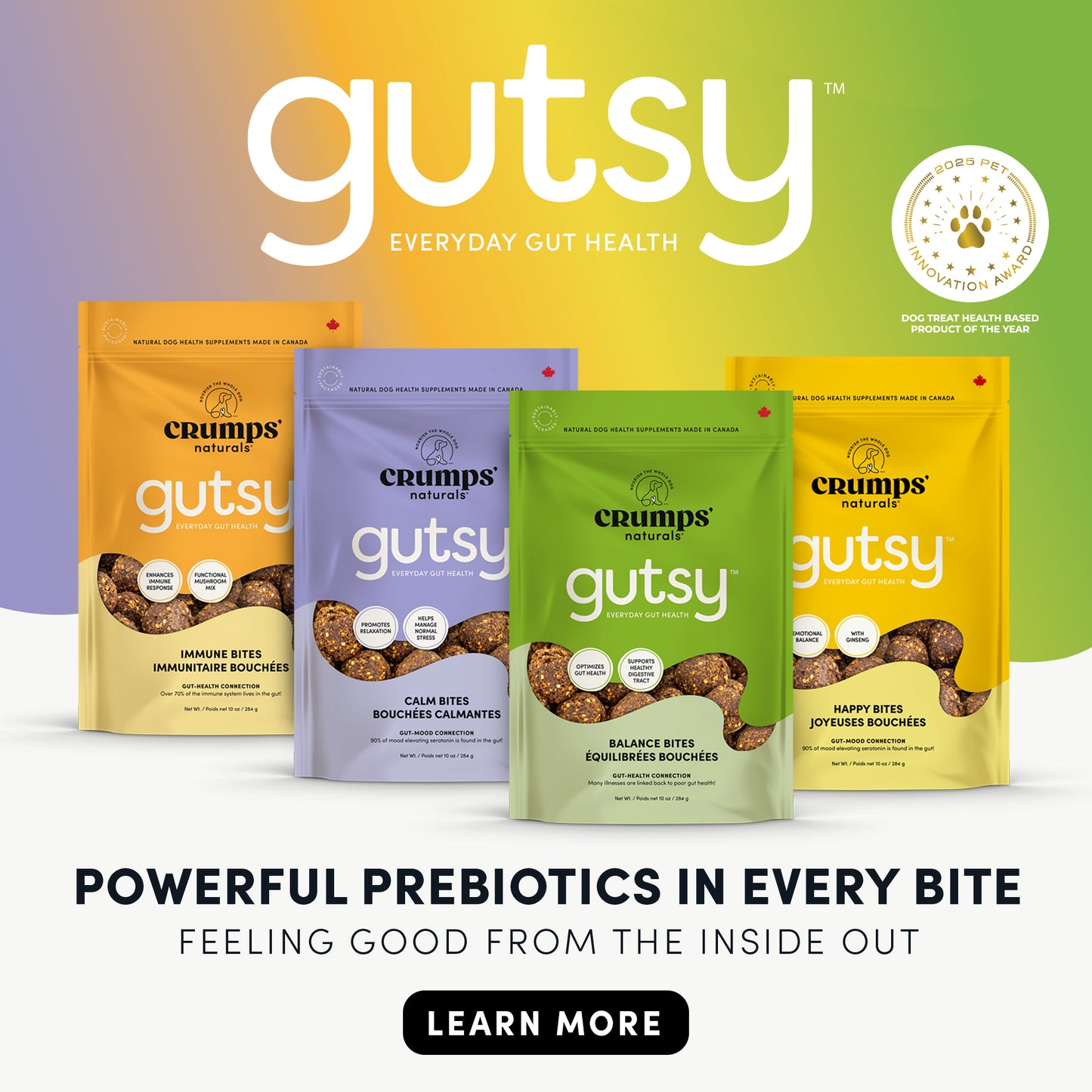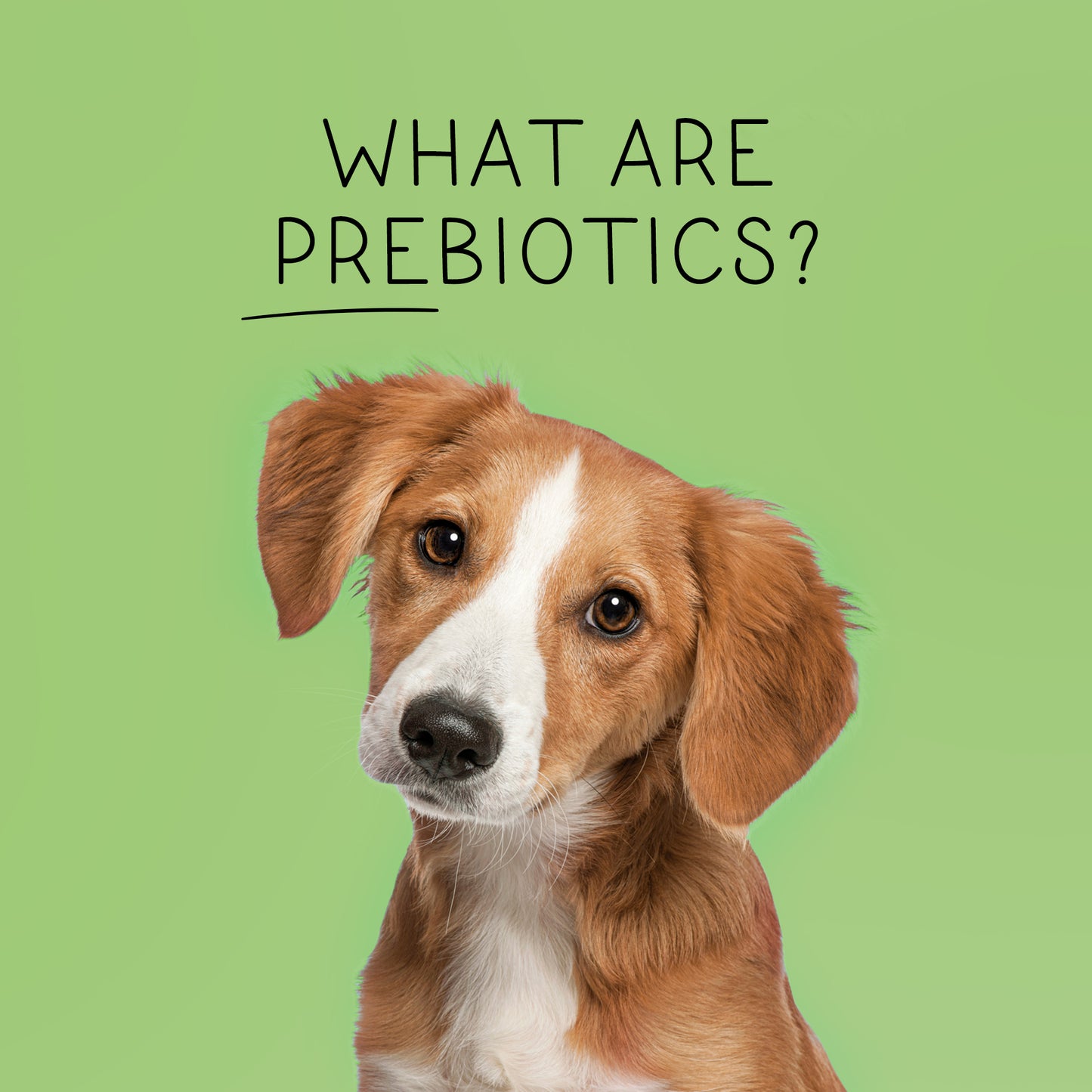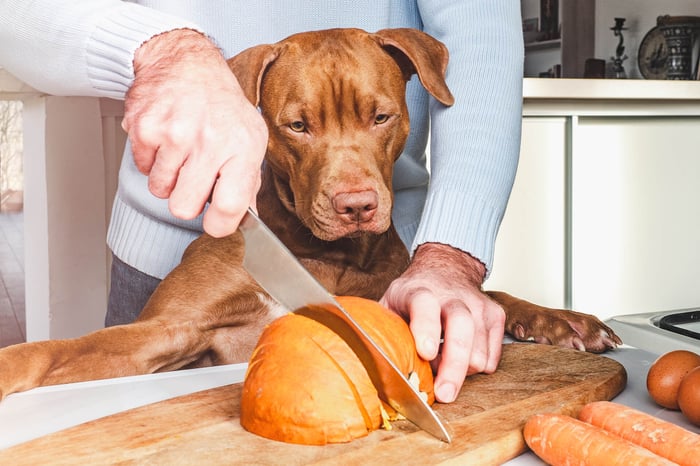When your dog greets you with a wagging tail and boundless energy, it’s a sign of a happy and healthy pup. But did you know that your dog’s energy levels are directly connected to their gut health? Just like in humans, a balanced gut plays a vital role in digestion, nutrient absorption, immunity, and even mood.
In this blog, we’ll explore how gut health influences your dog’s energy levels, common signs of an imbalanced gut, and easy ways to support optimal digestive health.
UNDERSTANDING THE GUT-ENERGY CONNECTION
Inside your dog’s belly lives an invisible world of trillions of tiny organisms—the gut microbiome. These good bacteria are the unsung heroes behind digestion, nutrient absorption, and immune defense.
When the gut is balanced:
- Nutrients are absorbed efficiently
- Energy is produced from food effectively
- The immune system functions optimally
When the gut is imbalanced:
- Poor nutrient absorption can cause fatigue
- Inflammation can drain energy levels
- Discomfort from digestive issues can reduce activity and playfulness
Simply put: A healthy gut equals a happy pup.
SPOTTING THE SIGNS OF AN UNHAPPY GUT
Your dog can’t exactly tell you when their belly feels “off,” but they do show signs:
- Low Energy Levels: Naps outnumber play sessions.
- Change in Appetite: Eating more, less, or turning up their nose.
- Digestive Drama: Irregular stools, diarrhea, or constipation.
- Tummy Rumbles: Frequent vomiting or excessive gas.
- Dull Coat or Itchy Skin: Outer health reflects inner health!
If your pup is ticking off these boxes, it’s time for a gut-health intervention.
NUTRITION: THE FOUNDATION OF A HEALTHY GUT
A well-balanced diet is one of the easiest ways to support your dog’s digestive health.
1. Focus on Natural Ingredients
Feed your dog high-quality food with real, whole ingredients like lean proteins, vegetables, and complex carbohydrates.
2. Prebiotic Support
Prebiotics act as fuel for the good bacteria already present in your dog’s gut, helping them thrive and maintain balance. Simple additions like fiber-rich vegetables, pumpkin, or natural supplements can provide a prebiotic boost. Subtle dietary additions, like Gutsy Balance Bites, can also help maintain a healthy gut microbiome with minimal effort.
3. Avoid Artificial Additives
Fillers, artificial colors, and preservatives can disrupt your dog’s digestive system and reduce nutrient absorption.
When you focus on what goes into your dog’s bowl, you’re directly supporting their energy and vitality.
STRESS AND GUT HEALTH
Stress doesn’t just affect your dog’s behavior—it also impacts their gut health. Anxiety and chronic stress can disrupt the microbiome, leading to digestive issues and lower energy levels.
Simple Ways to Reduce Stress:
- Maintain a consistent routine for feeding, walking, and playtime
- Create a calm, safe space for your dog to rest
- Include regular exercise and outdoor time
- Offer mental stimulation with puzzles or training sessions
By keeping your dog relaxed and stress-free, you’re giving their gut the chance to function at its best.
Small Steps for a Big Impact on Gut Health
Improving your dog’s gut health doesn’t have to be complicated. Here’s a quick checklist:
- Provide a natural, balanced diet
- Include prebiotic-rich foods and supplements
- Ensure your dog stays hydrated
- Avoid feeding table scraps or processed treats
- Minimize stress with consistent routines and affection
- Schedule regular veterinary checkups
When taken together, these steps help create a healthy digestive system and steady energy levels for your dog.
A HEALTHY GUT = A HAPPY, ENERGETIC DOG
Your dog’s gut health plays a major role in their overall energy, well-being, and happiness. By focusing on proper nutrition, prebiotic support, and stress reduction, you can set your dog up for more tail wags, playtime, and joyful adventures. Sometimes, small additions to your dog’s diet—like fiber-rich foods or a prebiotic supplement—can make a significant difference in their gut health and daily energy levels.
--
Article Sources:
https://www.foodmedicineforanimals.com/blog/dog-gut-health?utm
https://www.akc.org/expert-advice/nutrition/nutrition-feeding/?utm
https://www.petmd.com/dog/nutrition/evr_dg_whats_in_a_balanced_dog_food?utm
https://www.petmd.com/dog/nutrition/7-interesting-facts-about-your-dogs-digestive-system?utm
https://www.petmd.com/dog/general-health/fiber-for-dogs-how-much-and-what-kinds-are-best?utm
https://www.petmd.com/blogs/nutritionnuggets/jcoates/2011/nov/what_are_pro_and_prebiotics-11970?utm




















